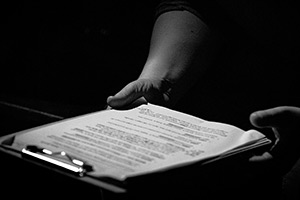Getting a comedy show on Netflix
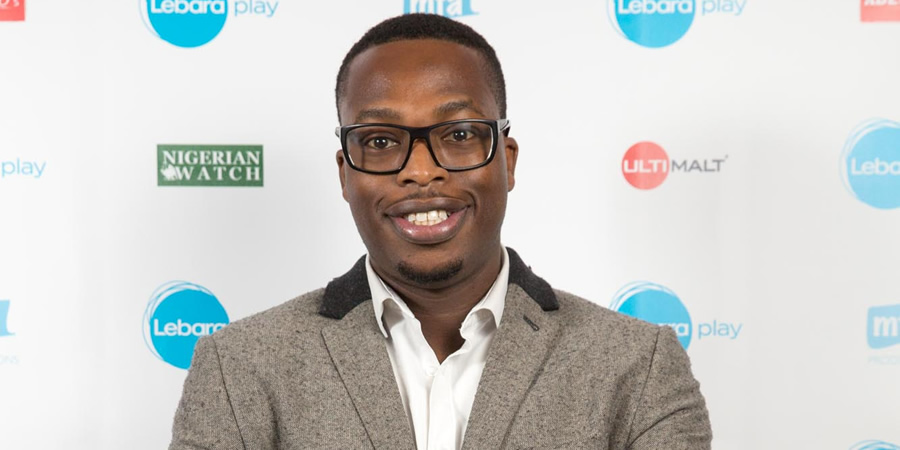
In this feature, producer Andrew Osayemi explains how his comedy series Meet The Adebanjos started on the web but has now found a home on Netflix. Andrew's tips at the bottom of this interview are particularly great.
Remind us Andrew, how did Meet The Adebanjos start out?
It started out in 2010 as concept.
Debra Odutuyo and I were discussing our childhoods and the funny things which we experienced growing up as British kids of Nigerian immigrant parents... We both looked at each other and said 'why hasn't something like this been produced before?'.
We decided to do a pilot and put it on YouTube to see if there was interest in a show like that. Debra sold her car and I put in some money (as I was working in banking at the time) and we produced a low budget pilot.
We put it on YouTube and, within a week, we had 50,000 views (which was a lot of views back then). Not only did we have the views, we had hundreds of comments regarding how we could make the show better.
We sent the pilot to the mainstream broadcasters thinking 50,000 views would get a commission, ha ha. They said 'no', but I guess the naivety in us thought that, if we could raise some cash and produce a full season, we could then sell that season to the broadcasters.
That's how we ended up producing 7 episodes for Series 1 independently (for around £10,000 an episode)...
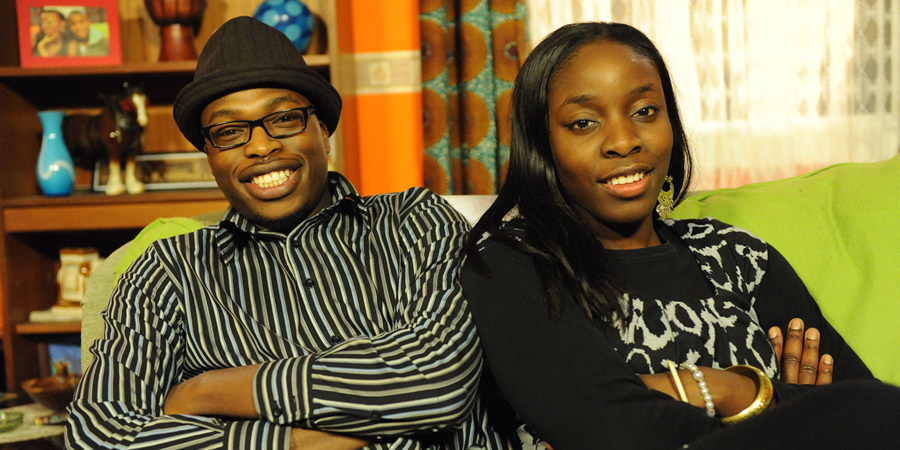
That full series was launched on YouTube, where it picked up many viewers. When it came to committing to a second series, and then a third series... were those easy decisions to make?
For each subsequent season I had to raise the funds to get the season made. I did this through pre-sales of the season to international TV stations, and then taking out loans to cover the pre-sales.
We didn't have a distribution company so I travelled across mainly African to strike deals with various TV stations. So it was really tough and it was always touch and go if we would get the funds for the series.
That's why between each series there is a two year gap; that's how long it took to get the funds together.
We also branched out and made a show called The T Boy Show and made 2 seasons of that show.
After Series 3, Debra and I decided, after 50 episodes, we had done enough justice to the show and it was now it was time to move on, instead of keeping fighting against the machine.
But now the show has popped up on Netflix, showing that projects can get a second lease of life and find new audiences in this new digital age?
It feels good! Mainly because we know how hard we worked on the show, despite the odds.
We made every mistake possible - including producing 5000 DVDs at a time DVDs was dying; and doing two theatre shows (Catford Broadway and Hackney Empire) which were sellouts, but we lost money on - all in the pursuit of trying to find an alternative business model, because we couldn't get a mainstream deal.
So the Netflix deal is a kind of validation for all the hard work we put in. But, even if we didn't get the deal, Debra and I were at peace and proud of what we were able to accomplish with so little.
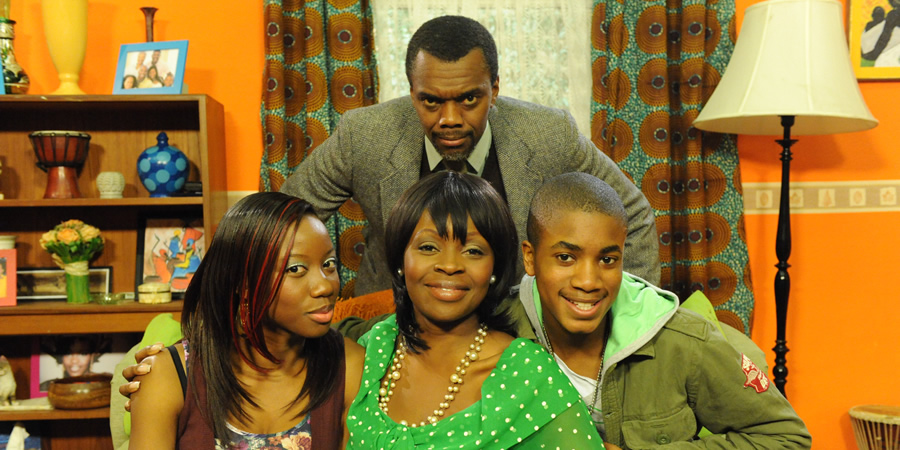
So how did the show actually end up on Netflix?
It all happened quickly, and was mainly because of my travels across Africa for all those years selling the seasons.
I found out that an executive I had met during those travels had joined Netflix at the start of this year, and I reached out.
I was then able to arrange subsequent meetings and was able to negotiate a deal for Netflix to licence all the seasons of the show.
I was very lucky because I was dealing direct and not through a distribution company, but I put it down to the years plugging away. If you stick at it and people see you making progress, despite the rejections, you will get the chance to one day be in position to make something happen.
What was the process like getting the actual content on Netflix?
Once the deal was done, of course the next stage was going through quality control. We had to make a few tweaks to the audio etcetera, but I was happy that for the most part our content passed, which is a validation for our production team despite our limited resources.
How does the money work out? Do you get a flat fee? Or is it based on how it performs?
I'm not allowed to go into the specifics unfortunately, due to the contract terms, but they are fair in terms of cash flow.
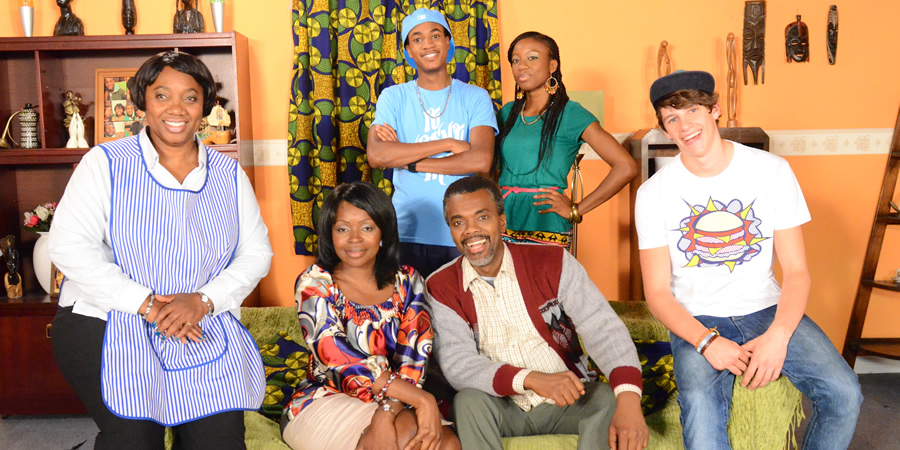
Do you get any insight into how it's doing on there? We hear Netflix keep their statistics very close to their chest?
The executives I did the deal with are open and transparent with me and give me an indication of how the show is going.
The biggest mistake I think producers do is presume that once a show is on a platform it's going to be an instant hit. You still have to do your bit marketing and promoting it, so people know it's there.
There is a lot of content on Netflix so consumers have a lot of choice, so you have to give them a reason to check out your content.
Generally, any tips for any other producers out there reading this, based on what you've learned over the last decade working on this show?
- Produce pilot concepts of your work; it's the only way people will take you serious.
- Look for alternative business models. We found an international market which we could raise money from, which a lot of people dismiss.
- Look after yourself mentally and physically. Dealing with rejections is very tough and in TV nothing can happen over a long period of time so you have to protect your health.
- Look at producing content for social media stars. The content business is changing and social media influencers' power is increasing. Brands are now giving them bigger budgets to work with, so why not produce content with them? They could help you to get your vision to the world.
- Keep networking. People move around all the time, and you never know where people will end up.
- Treat the people you work with well and always pay staff on time. I learnt, even if you are paying very little, if you pay people on time they will respect you and keep delivering for you!
- Good luck!!
Meet The Adebanjos is on Netflix
This article is provided for free as part of BCG Pro.
Subscribe now for exclusive features, insight, learning materials, opportunities and other services for comedy creators.


